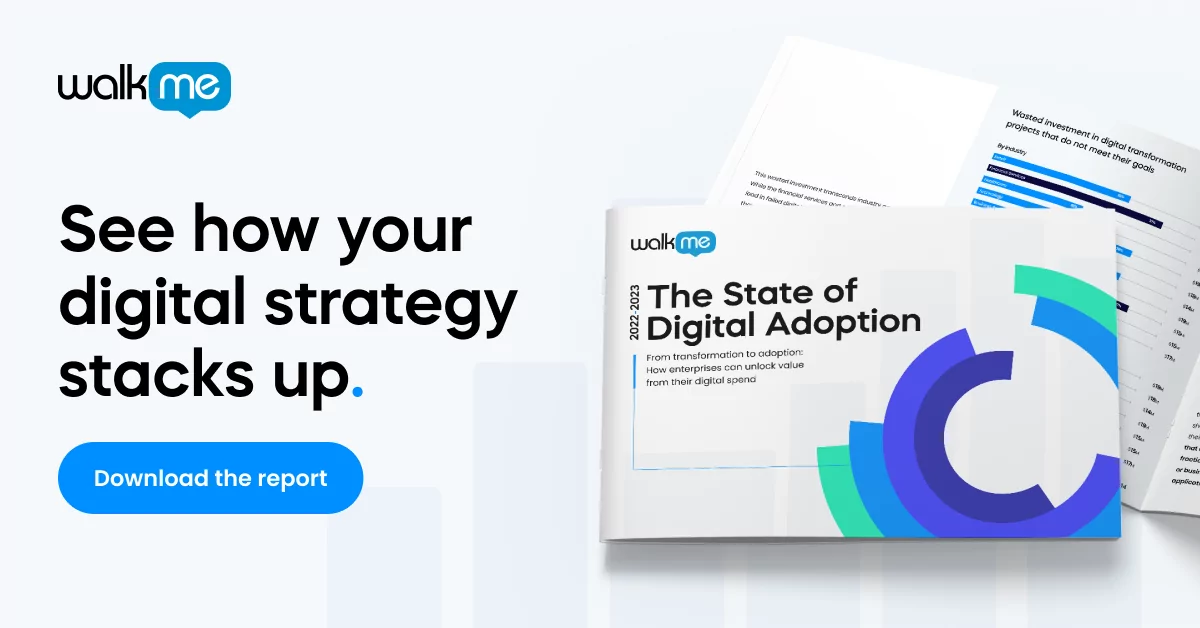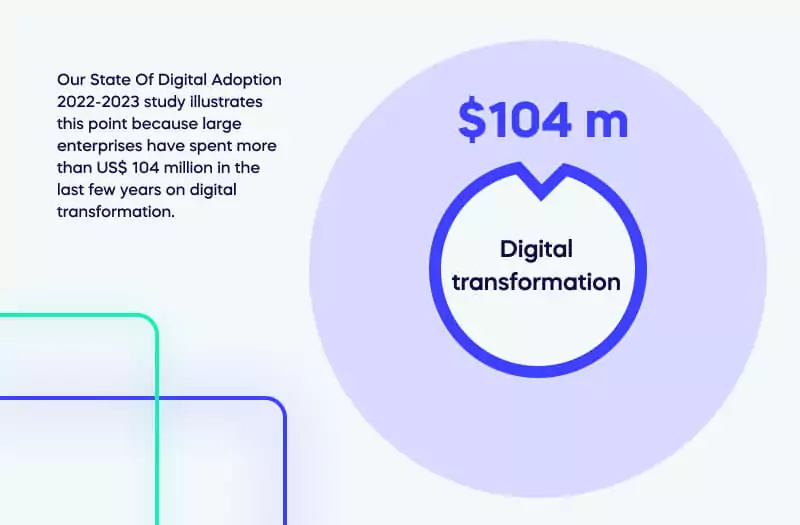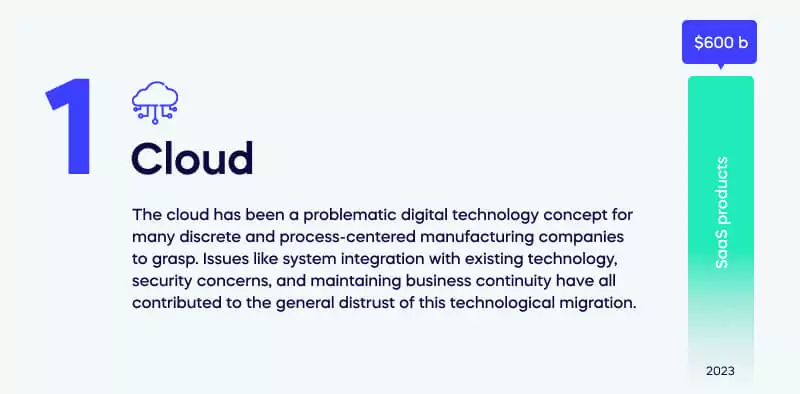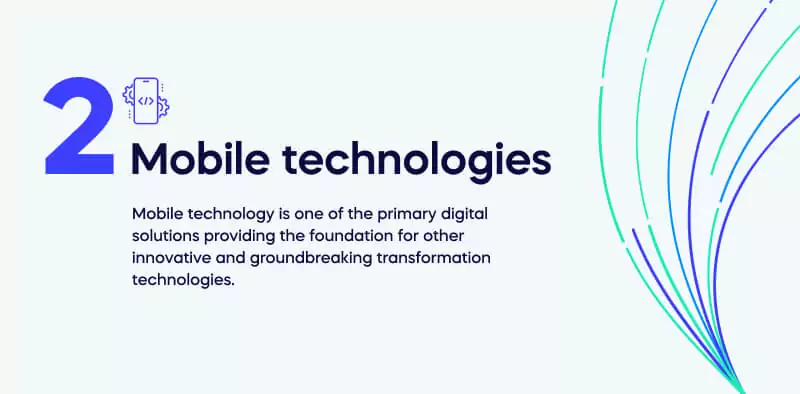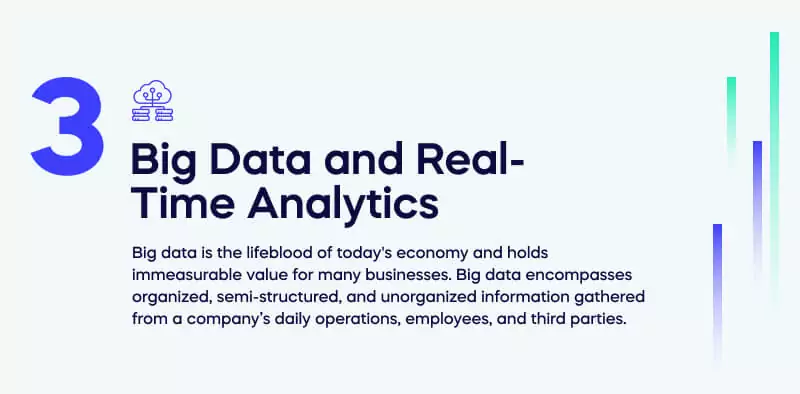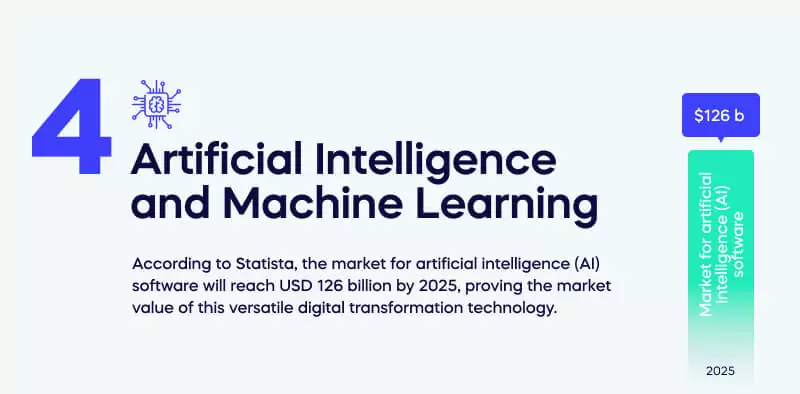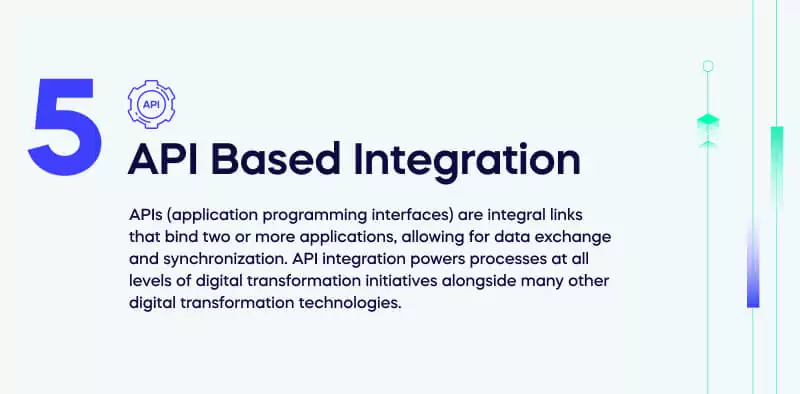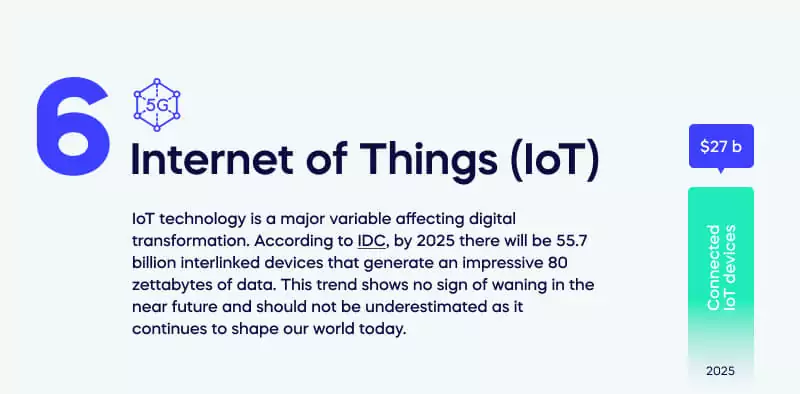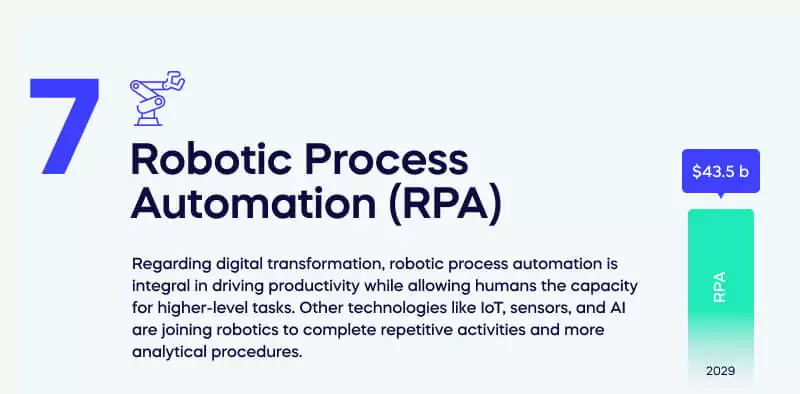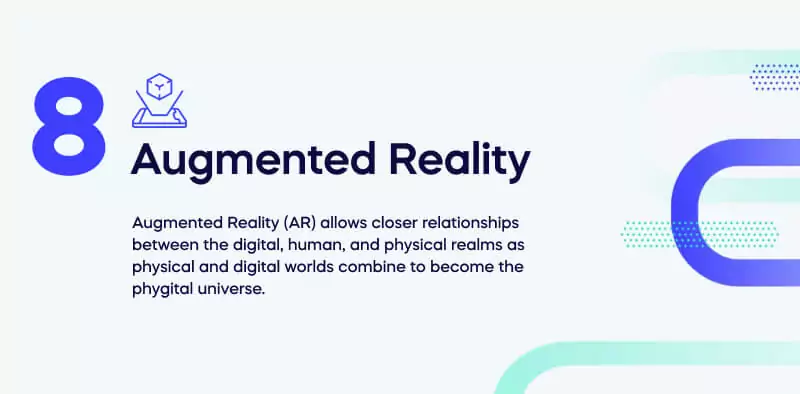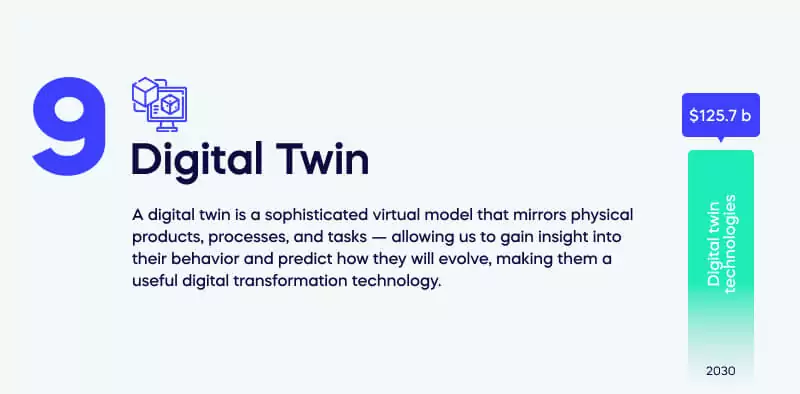With a rapidly changing market causing an increasing need for agility and competitiveness, digital transformation technologies are more critical than ever to success in 2023.
Today, digital transformation projects help ensure your business’s future by enabling you to stay agile. Business processes become more efficient, and your organization becomes digitally resilient to disruption.
Our 2023 survey provide a comprehensive overview of digital transformation technologies in the industrial sector, exploring their adoption rates and potential impact. We used this report to compose our list in order of prevalence in the industry and the order of technologies.
The survey methodology was extensive, examining data from over 366,000 interactions between companies and software engineers on Hired from January 2020 to December 2021. This ensured that the data was reliable and representative of the state of software engineering during the survey period.
Moreover, the report’s criteria for valid data ensured that only responses from significant markets with sufficient interview requests were included, adding further credibility to the findings.
The order of digital transformation technologies according to adoption rates (as a percentage) is:
| 1 | Cloud technology | |
| 2 | Mobile technologies | |
| 3 | Big data and real-time analytics | |
| 4 | AI (artificial intelligence) and ML (machine learning) | |
| 5 | API-based integration | |
| 6 | Internet-of-Things (IoT) | |
| 7 | Robotic Process Automation (RPA) | 20% |
| 8 | Augmented Reality (AR) | 11% |
| 9 | Digital twin | 10% |
However, investment into these technologies only has value when focused strategically, so it’s essential to note that the digital transformation technologies you choose are the key to ensuring your successful strategy. For this reason, we will discuss the ten must-have technologies for 2023 and how to get ahead of the curve with these technologies by using a DAP.
What are the 9 must-have digital transformation technologies for 2023?
Take advantage of our comprehensive list to help you find the best digital transformation technologies for 2023 that suit your needs and will lead to a successful transformation.
1. Cloud
The cloud has been a problematic digital technology concept for many discrete and process-centered manufacturing companies to grasp. Issues like system integration with existing technology, security concerns, and maintaining business continuity have all contributed to the general distrust of this technological migration. However, despite these challenges, it remains an essential technology, with Gartner projecting that companies will spend US$ 600 billion on SaaS products in 2023.
Harnessing the cloud is instrumental for digital transformation efforts as it provides enhanced mobility and speed within an organization and a quicker capability to scale.
2. Mobile technologies
To meet the demands of their customers during this pandemic, some businesses moved toward digital transformation to provide access and support remotely – primarily through mobile. While for a few companies it was simply enough to add WhatsApp as an additional communication channel, many had (or will have) far more complex needs that require robust solutions.
In the present day, companies are taking an in-depth look at how mobility and digital services can optimize their business models. Far beyond upgrades to the user experience, these businesses are committed to pushing themselves out of their comfort zones and striving for innovation.
The main aspects of mobile technologies to consider as part of your digital transformation are:
- Fraud is a high risk for large enterprises with many mobile employees.
- 5G is not yet widespread, but will be used more in the coming years.
- Data gaurdianship is a concern as mobile devices hold large amounts of data but are often not secured in the same ways as on-premise devices.
The “2021 Mobility Trends Report” by Stratix provides insights into the use of mobile technology across industries, including manufacturing. The report shows the growing prevalence of mobile technologies, as 90% of companies in the industrial sector use mobile devices and 79% plan to increase their investments in mobile technology within the next two years.
3. Big data and real-time analytics
Big data is the lifeblood of today’s economy and holds immeasurable value for many businesses. Big data encompasses organized, semi-structured, and unorganized information from a company’s daily operations, employees, and third parties. This scenario caused a continuous spike in growth, presenting companies with difficulties and openings.
Big data analytics is essential for businesses that want to make intelligent, evidence-based decisions. Companies can collect and utilize the data in predictive modeling, mining existing information, and other types of analysis that allow organizations to transform vast amounts of raw information into actionable insights.
Real-time analytics involves the immediate analysis of data to enable instantaneous action. Machines stream data from operational systems with high-performance analytics, allowing for robotic process automation (RPA) and automated policy enforcement, making decisions efficiently and accurately.
Real-time analytics dramatically reduce response times and maximize efficiency by providing an up-to-date view of resources as soon as they enter the system, making them an essential digital transformation technology.
4. Artificial intelligence and machine learning
According to Statista, the market for artificial intelligence (AI) software will reach USD 126 billion by 2025, proving the market value of this versatile digital transformation technology.
AI is unlocking groundbreaking analytics and insights, driven by a dramatic rise in data and access to data that companies rely on for data-driven decision-making, coupled with the growing prevalence of computing power and connectivity.
This rise in data has opened the door for fresh approaches to tackling problems such as generative design, which utilizes AI technology to optimize designs from a specific set of system parameters rapidly. It saves many hours (and even days) of engineering work that companies would have required.
Alongside AI, machine learning provides various applications in manufacturing, healthcare, technology, and retail. Its ability to efficiently analyze and extract meaning from large amounts of data acquired from IoT devices allows it to detect patterns and abnormalities using intuitive networks.
While AI is essential to the evolution of technologies, such as using digital twins, machine learning makes AI a valuable component of digital transformation.
5. API-based integration
APIs (application programming interfaces) are integral links that bind two or more applications, allowing data exchange and synchronization. API integration powers processes at all levels of digital transformation initiatives alongside many other digital transformation technologies.
Using APIs is beneficial in the digital world and across various industries – from small to large enterprises – enabling enhanced application operation and functionality while increasing productivity and revenue streams as they streamline business processes.
According to a survey conducted by the API company Postman in 2022, 89% of global respondents declare that investments in APIs will either increase or remain the same over the upcoming year.
Organizations take advantage of APIs in the digital world. Following the cloud-based product surge, organizations must develop an interconnected system that automatically communicates between software tools. This process is possible through API-based system integration, which enhances data sharing and enterprise information among various apps in a single ecosystem.
6. Internet of Things (IoT)
IoT technology is a major variable affecting digital transformation. According to IDC, by 2025 there will be 55.7 billion interlinked devices that generate an impressive 80 zettabytes of data. This trend shows no sign of waning in the near future and should not be underestimated as it continues to shape our world today.
By leveraging this valuable resource, businesses can assess and understand their customers’ needs and offer services tailored specifically to them. It also accelerates customer engagement which increases client satisfaction overall. Plus, with its ability to facilitate operations from anywhere at any time, staff members benefit too – now more than ever.
IoT is a catalyst for organizational digital transformation, offering immense investment potential, cost optimization possibilities, improved user experience and productivity metrics. Additionally, it strengthens decision-making capabilities while enabling businesses to use new models that generate an increase in revenue streams.
IoT is paving the path for digital transformation across a variety of sectors, from healthcare and government to education and communication, as well as agriculture, security, and transportation. It’s clear that IoT will be an important part of our future.
7. Robotic process automation (RPA)
Regarding digital transformation, robotic process automation is integral in driving productivity while allowing humans the capacity for higher-level tasks. Other technologies like IoT, sensors and AI are joining robotics to complete repetitive activities and more analytical procedures.
To underscore the demand for RPA, Statista predicts that investment into this technology will increase from USD 4.3 billion in 2023 to USD 23.9 billion by 2030, making it a useful transformation technology.
8. Augmented reality
Augmented Reality (AR) allows closer relationships between the digital, human, and physical realms as physical and digital worlds combine to become the phygital universe.
According to Gartner, by 2025, 80% of B2B sales interactions between suppliers and buyers will occur in digital channels, which means sales organizations need to actively look for new ways to engage with customers such as AR technologies.
By leveraging enterprise AR, you can transform and revolutionize your business by improving worker efficiency and quality, offering differentiated products and advanced human-machine interfaces, enhancing knowledge transfer and training programs, and providing new customer support services.
9. Digital twin
A digital twin is a sophisticated virtual model that mirrors physical products, processes, and tasks — allowing us to gain insight into their behavior and predict how they will evolve, making them a useful digital transformation technology. To underscore the market value of digital twins, Allied Market Research predicts that digital twin technologies will reach a value of US$ 125.7 billion by 2030.
Companies can gain more insight into their products and operations by utilizing digital twins, as they can manipulate and redesign virtual representations of physical items quickly to meet user needs. As these digital twins become increasingly sophisticated, you can modify them to suit multiple organizational roles and applications.
Plus, with technological advances such as IoT, augmented reality, or ‘digital thread’ integration of product lifecycle CAD data, those identical digital twins are becoming even more effective and impactful for the business world.
Digital twins are becoming increasingly essential as digital transformation technologies for many parts of the value chain, from engineering to operations, maintenance, and service.
Get ahead of the curve with digital transformation technologies by using a DAP
The future of digital transformation is looking bright for companies who invest in the right technologies, such as our Digital Adoption Platform (DAP).
Suppose your company wants to be a leader in this field. In that case, you must start investing in these digital technologies today. A DAP will help streamline training for new technologies by allowing employees to train at their own pace, reducing onboarding time and optimizing employee experience.
With DAP, you can lead the way with world-leading digital transformation.
